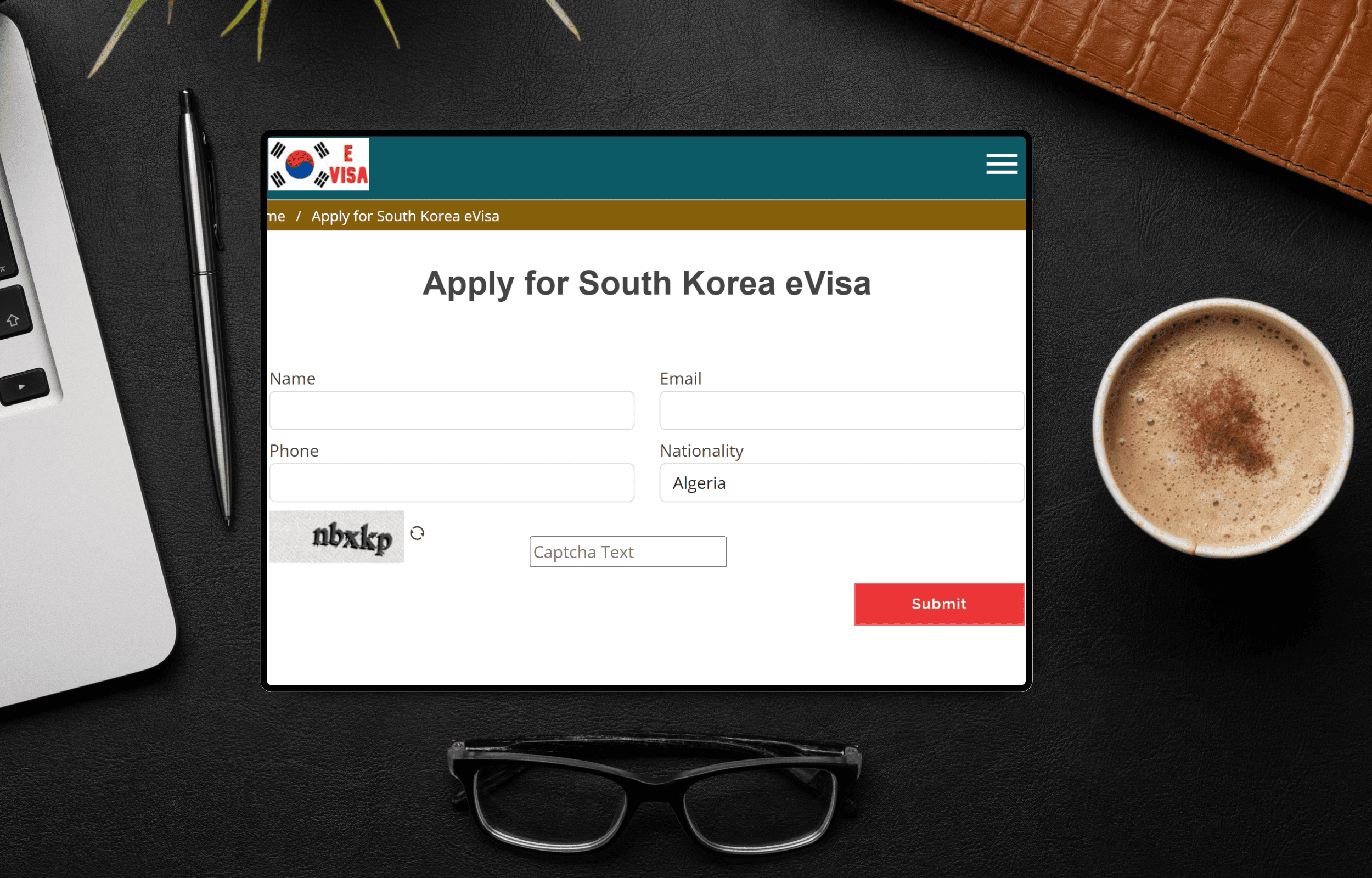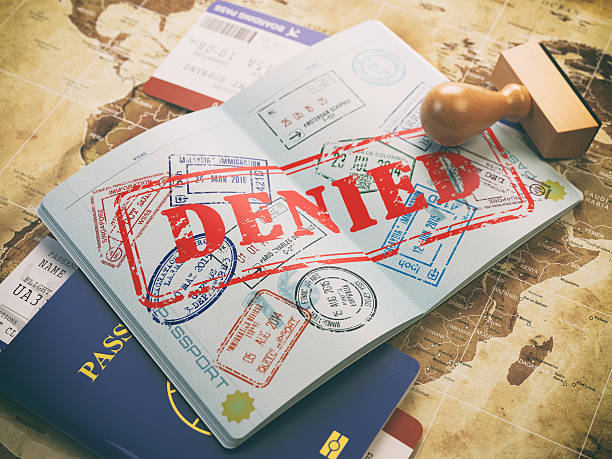Eligibility and eTA Types
South Korea offers several types of family eTA, each catering to specific family relationships and circumstances:
F-3 Dependent eTA
Designed for family members (spouse and children) of individuals holding specific long-term visas, such as work or study visas (e.g., E-series, D-series). Allows dependents to live in South Korea for the duration of the sponsor’s stay.
F-1 Visiting and Joining Family eTA
Intended for extended family members(e.g., parentsor adult children). Primarily issued for short-term stays or when dependents do not qualify for the F-3eTA.
F-6 Spouse of a Korean National eTA
For foreign spouses of South Korean citizens. Grants long-term residency and provides a pathway to permanent residency and citizenship.
Family eTA Required Documents
While requirements may vary slightly based on the eTA type and the issuing consulate, the general documents include:
- Application Form: Completed and signed eTA application form (available on the Korean embassy or consulate website).
- Passport: Original passport with at least six months of validity and a photocopy.
- Passport Photos: Recent passport-sized photos (meeting South Korean photo standards).
- Relationship Proof:
- Marriage certificate for spouses.
- Birth certificates for children.
- Documents must be translated into Korean or English and notarized, if applicable.
- Sponsor’s Documents:
- Sponsor’s passport copy and Alien Registration Card (ARC).
- Proof of legal residence or employment in South Korea, such as a Certificate of Employment or business registration certificate.
- Financial Proof: Bank statements, proof of income, or sponsorship affidavit from the sponsor.
- Health Check and Insurance: Health check documentation and proof of health insurance coverage, if required.
- ETA Fee: Payment as per the consulate’s guidelines.
South Korea Family eTA Application Process

The application process involves several steps to ensure that all requirements are met and the eTA is granted:
Step 1: Prepare Required Documents: Start by gathering all the necessary documents to support your family South Korea eTA application. These typically include a completed eTA application form, a valid passport, passport-sized photos, proof of relationship (such as a marriage certificate or birth certificate), financial statements, and the sponsor’s proof of residency in South Korea. Ensure that all documents meet the specific requirements of the South Korean embassy or consulate where you are applying.
Step 2: Submit Application to the Embassy or Consulate: Submit the eTA application at the nearest embassy or consulate in your home country. Some consulates may require an appointment, while others might accept walk-in submissions. In certain cases, online applications may be available. Double-check that all information is accurate and complete to avoid processing delays or rejections.
Step 3: Wait for Processing & Additional Requests: Processing times typically range from 1-6 Working Days, depending on the consulate and the complexity of the case. During this period, immigration authorities may request additional documents or an interview to verify the relationship. Keep track of your application status and be prepared to provide any extra information if needed.
Step 4: Collect eTA & Verify Details: Once your eTA is approved, you will receive a notification to collect it from the embassy or consulate. Upon receiving the eTA, carefully check all details, including validity dates and entry conditions. If you notice any errors, report them immediately to the issuing authority. With your approved family eTA, you can now travel to South Korea and reunite with your family.
Validity of a Family eTA for South Korea
The validity of a family eTA for South Korea typically depends on the eTA type and the purpose of stay:
- Short-Term eTAs (C-3): Usually valid for up to 90 days. These are for temporary family visits.
- Long-Term eTAs (F-3, F-1, etc.): Validity depends on the sponsor's eTA type.
For
instance:
-F-3 Dependent eTA (for family members of foreign residents): Typically matches the duration of the principal sponsor’s eTA.
-F-1 eTA (family visitation): Validity and duration vary, often dependent on the invitation and sponsorship details.
Processing Time for a Family eTA to South Korea
The processing time for a family eTA to South Korea varies depending on the eTA type, individual circumstances, and the embassy or consulate where you apply. In general:
- Standard Processing: Most applications take approximately 1-6 Working Days after submission.
- Additional Processing: In cases where additional documents or background checks are required, processing may take longer.
Fees and Payment Methods for a Family eTA to South Korea
The fees for obtaining a family eTA to South Korea vary based on the eTA type, applicant’s nationality, and duration of stay. Below are the key details:
- Fee Structure
- Fees are typically determined by the nature of the eTA (short-term vs. long-term) and whether it is a single-entry or multi-entry eTA.
- Certain nationalities may benefit from fee exemptions or reduced rates under bilateral agreements.
- Accepted Payment Methods:
- Payment is generally required in the local currency of the country where the application is submitted.
- Most embassies and consulates accept payment via cash, bank transfer, or money order. In s
eTA Extensions for Family eTAs in South Korea
Extending a family eTA in South Korea requires careful adherence to immigration regulations. The process and requirements vary depending on the eTA type and the specific circumstances of the applicant. Below are the key considerations:
- Eligibility for Extension
Extensions are typically available for long-term family eTAs, such as the F-3 Dependent Visa or F-1 Visiting Family eTA. The validity of the principal sponsor’s eTA is a critical factor in determining eligibility.
- Application Process
Applications must be submitted to the Korea Immigration Service or a regional immigration office before the eTA expiration date.
Required documentation often includes:
-A completed application form.
-Passport and Alien Registration Card (ARC).
-Proof of the family relationship (e.g., marriage or birth certificates).
-Documentation confirming the sponsor’s status (e.g., residence or work permits).
- Processing Time
Processing typically takes 1-6 Working Days, though it may vary depending on the case.
- Fees
A processing fee is applicable and must be paid at the time of submission. Payment methods often include cash or credit card, depending on the immigration office’s policies.
- Important Considerations
Overstaying without obtaining an extension can result in fines, legal penalties, or future eTA restrictions. Changes in circumstances, such as the departure of the principal sponsor or the dissolution of a marriage, may affect eligibility for an extension.
Differences Between Applying for a Long-Term and Short-Term Family eTA for South Korea
There are notable differences between applying for a short-term and long-term family eTA for South Korea. These differences relate to the purpose of the eTA, required documentation, validity, and processing times.
Aspect |
Short-Term Family eTA (C-3) |
Long-Term Family Visa F-1, F-3, |
|
Purpose of Stay |
This visa is meant for temporary visits, such as attending family events, short holidays, or brief stays with relatives. |
Designed for extended stays, such as accompanying a family member working or residing in South Korea. |
|
Validity and Duration |
Valid for up to 90 days, with limited options for extension except in special circumstances. |
Valid for six months to several years, often matching the duration of the sponsor’s visa. Extensions can be applied for through the Korea Immigration Service. |
|
Requirements |
Requires basic documents, including an application form, passport, photo, proof of family relationship, an invitation letter from the host in Korea, and evidence of financial means. |
Requires additional documentation, such as notarized marriage or birth certificates, sponsor’s employment or residence documents, and detailed proof of financial support. |
|
Work Eligibility |
Does not allow employment in South Korea. |
Generally does not allow work, except under specific eTA types (e.g., F-2 Resident eTA), which may permit limited employment rights. |
|
Processing Time |
Typically processed within 1-6 Working Days. |
Processing may take 2–4 weeks due to additional verification and review. |
|
Application Process |
Applications are submitted directly to the South Korean embassy or consulate. |
May involve additional steps, such as pre-approval from the Korea Immigration Service. |
Common Reasons for Family Visa Rejection in South Korea

Visa applications for South Korea may be rejected for several reasons, often related to incomplete paperwork, eligibility issues, or concerns about the applicant’s background. Below are some of the most common reasons:
- Incomplete or Incorrect Documentation: Missing or improperly completed application forms, lack of required documents (like proof of family relationship), or failure to provide translated and notarized copies can lead to rejection.
- Financial Support Issues: If the sponsor cannot demonstrate sufficient financial resources to support the applicant, or if proof of stable income is missing, the application may be denied.
- Problems with Sponsor’s eTA Status: If the principal sponsor’s eTA has expired, is close to expiration, or they have violated eTA regulations, the dependent’s eTA application may be rejected.
- Background Concerns: Previous eTA violations, overstays in South Korea, or criminal history can result in a rejection.
- Inconsistent Information: Discrepancies or misrepresentation of information in the application, or suspicion of fraudulent documentation, can lead to denial.
- Eligibility Issues: Applicants who do not meet the requirements for a family eTA or cannot prove a legitimate family relationship may face rejection.
- Policy or Quota Restrictions: Some eTA categories may be subject to quotas or specific policies that limit approvals.
Post-Arrival Steps in South Korea
Once you arrive in South Korea, certain steps must be taken to ensure compliance with local regulations:
- Alien Registration Apply for an Alien Registration Card (ARC) within 90 days of arrival at the local immigration office. This card serves as your official ID during your stay.
- Update Address Notify local authorities about your residence address within 14 days of moving to a new location.
- eTA Extension (if needed) If you plan to stay beyond the initial eTA validity period, apply for an extension at the immigration office.
Frequently Asked Questions
You will need to provide a completed application form, passport-sized photos, a valid passport, proof of family relationship (such as marriage or birth certificates), evidence of the sponsor’s eTA status, proof of financial support, and any additional documents specified by the consulate.
The processing time usually ranges from 1-6 Working Days. However, it may take longer if additional documentation or background checks are required.
Most family eTAs, like the F-3 Dependent eTA, do not allow employment. Some other eTA types, such as the F-2 Resident eTA, may grant work eligibility under certain conditions.
Yes, you can apply for an extension at the Korea Immigration Service before your eTA expires. You’ll need to submit an application form, proof of your relationship, updated sponsor information, and other required documents.
Applications may be rejected due to incomplete or incorrect documents, insufficient financial support, issues with the sponsor’s eTA status, past eTA violations, or failure to meet eligibility requirements.
If your application is rejected, you can request feedback from the consulate to understand the reasons for the denial. After addressing the issues, you can reapply or, in some cases, appeal the decision if applicable.
Content Disclaimer: Although this information was last updated in July 2025 , we recommend verifying with the appropriate agencies, embassies, and airlines to ensure complete accuracy regarding your travel plans.


To help us improve